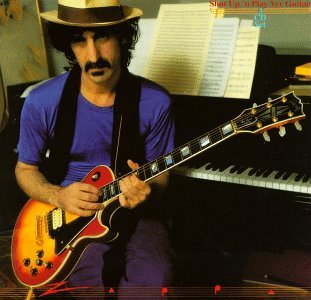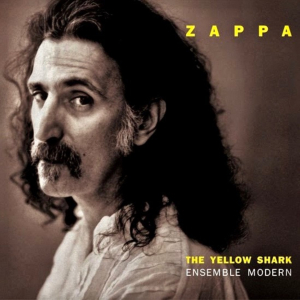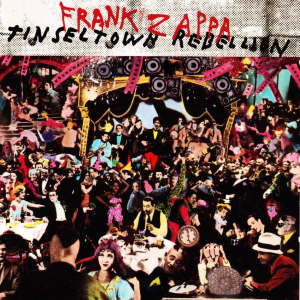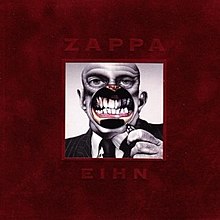
Frank Vincent Zappa was an American musician, composer, and bandleader. His work is characterized by nonconformity, free-form improvisation, sound experiments, musical virtuosity and satire of American culture. In a career spanning more than 30 years, Zappa composed rock, pop, jazz, jazz fusion, orchestral and musique concrète works, and produced almost all of the 60-plus albums that he released with his band the Mothers of Invention and as a solo artist. Zappa also directed feature-length films and music videos, and designed album covers. He is considered one of the most innovative and stylistically diverse musicians of his generation.

Dweezil Zappa is an American rock guitarist and occasional actor. He is the son of musical composer and performer Frank Zappa. Exposed to the music industry from an early age, Dweezil developed a strong affinity for playing the guitar and producing music. Able to learn directly from guitarists such as Steve Vai and Eddie Van Halen, Dweezil released his first single at the age of 12.

Joe's Garage is a three-part rock opera recorded by American musician Frank Zappa in September and November 1979. Originally released as two separate studio albums on Zappa Records, the project was later remastered and reissued as a triple album box set, Joe's Garage, Acts I, II & III, in 1987. The story is told by a character identified as the "Central Scrutinizer" narrating the story of Joe, an average adolescent male, from Canoga Park, Los Angeles, who forms a garage rock band, has unsatisfying relationships with women, gives all of his money to a government-assisted and insincere religion, explores sexual activities with appliances, and is imprisoned. After being released from prison into a dystopian society in which music itself has been criminalized, he lapses into insanity.

Uncle Meat is the fifth studio album by the Mothers of Invention, released as a double album in 1969. Uncle Meat was originally developed as a part of No Commercial Potential, a project which spawned three other albums sharing a conceptual connection: We're Only in It for the Money, Lumpy Gravy and Cruising with Ruben & the Jets.

200 Motels is a 1971 surreal musical film written and directed by Frank Zappa and Tony Palmer, and featuring music by Zappa. An international co-production of United States and the United Kingdom, the film stars the Mothers of Invention, Theodore Bikel and Ringo Starr.

Hot Rats is the second solo album by Frank Zappa, released in October 1969. It was Zappa's first recording project after the dissolution of the original version of the Mothers of Invention. Five of the six songs are instrumental; while "Willie the Pimp", features vocals by Captain Beefheart. In his original sleeve notes, Zappa described the album as "a movie for your ears".

Burnt Weeny Sandwich is the sixth studio album by the American rock band the Mothers of Invention, and the ninth overall by Frank Zappa, released in 1970. It consists of both studio recordings and live elements. In contrast to the next album Weasels Ripped My Flesh, which is predominantly live and song-oriented, most of Burnt Weeny Sandwich focuses on studio recordings and tightly arranged compositions.

Weasels Ripped My Flesh is the seventh studio album by the American rock group the Mothers of Invention, and the tenth overall by Frank Zappa, released in 1970. It is the second album released after the Mothers disbanded in 1969, preceded by Burnt Weeny Sandwich. In contrast to its predecessor, which almost entirely focused on studio recordings of arranged compositions, Weasels Ripped My Flesh consists of a combination of live and studio recordings and features more improvisation.

The Mothers of Invention was an American rock band from California. Formed in 1964, their work is marked by the use of sonic experimentation, innovative album art, and elaborate live shows.

Shut Up 'n Play Yer Guitar, a project consisting of Shut Up 'n Play Yer Guitar, Shut Up 'n Play Yer Guitar Some More and Return of the Son of Shut Up 'n Play Yer Guitar, is a series of albums by Frank Zappa. The albums consist solely of electric guitar instrumentals and improvised solos played by Zappa and featuring a wide variety of backing musicians.

The Yellow Shark is an album of orchestral music by American musician Frank Zappa. Released in November 1993, it was the last Zappa album released in his lifetime, almost exactly a month before he died of the cancer from which he had suffered for several years. It features live recordings from the Ensemble Modern's 1992 performances of Zappa's compositions. In the album's notes, Zappa describes The Yellow Shark as one of the most fulfilling projects of his career, and as the best representation of his orchestral works.

This is a list of albums by Frank Zappa, including all those credited to the Mothers of Invention. During his lifetime, Zappa released 62 albums. Since 1994, the Zappa Family Trust has released 57 posthumous albums as of July 2021, making a total of 119 albums/album sets.

Halloween is a live album by Frank Zappa, released in DVD-Audio format by Vaulternative Records in 2003. It features recordings compiled from various shows at The Palladium, New York City in late October 1978—including a Halloween show on October 31—along with some video content from the same period.

Does Humor Belong in Music? is a live album by Frank Zappa.

London Symphony Orchestra is an album series by Frank Zappa, released in two parts as London Symphony Orchestra, Vol. I in 1983 and London Symphony Orchestra, Vol. II, in 1987. They were recorded at the same sessions, in January 1983. The two albums were later combined, and re-released on a Rykodisc CD as London Symphony Orchestra Vol. I & II (1995).

Playground Psychotics is a two-CD live album by Frank Zappa and the Mothers of Invention. It was originally released in 1992 through his mail order label, Barking Pumpkin, and was re-released in 1995 through Rykodisc. The album features recordings of Zappa and his band, the Mothers of Invention, around the time of the film 200 Motels. The live material on Playground Psychotics is interspersed with excerpts from taped conversations among band members whilst on tour, and the release includes three conceptual sections: A Typical Day on the Road, Part 1, a collage of dialogue which opens the first disc; A Typical Day on the Road, Part 2, which opens the second disc and The True Story of 200 Motels, which appears at the end of disc two. The album also includes a live session with John Lennon and Yoko Ono, an alternate mix of which appears on Lennon's Some Time in New York City (1972).
Barking Pumpkin Records, is an American record label founded by Frank Zappa in 1981. Zappa named the label after his wife's smoker's cough when she tried to quit the habit. Barking Pumpkin was initially distributed by CBS Records.

Baby Snakes is the soundtrack to Frank Zappa's film of the same name. It features several of the songs from the film and was originally released as a picture disc.

Tinsel Town Rebellion is a double live album released by Frank Zappa in May 1981. The album was conceived by Zappa after he scrapped the planned albums Warts and All and Crush All Boxes, and contains tracks that were intended for those albums.

The Frank Zappa AAAFNRAAAAAM Birthday Bundle 2011 is a compilation album released as a digital download through the Zappa Family Trust on Frank Zappa's 71st Birthday, December 21, 2011. It features both recordings by Zappa himself, as well as various covers of his material.


















